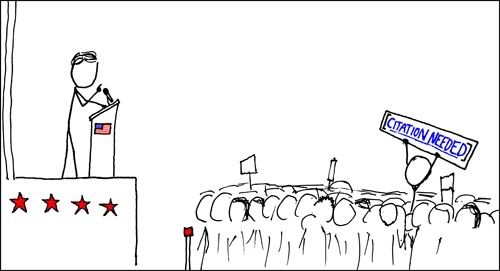Sharia Law Has Already Converted 99% of Americans into Sekret Mooslims!!

Alabama bill to ban Sharia law was cribbed from Wikipedia
The introduction of bills to ban the use of Sharia law in American courts has become something of a fad among conservative lawmakers, who see political benefits in presenting themselves as standing firm against supposed cultural encroachment by American Muslims.
Sharia is an Islamic code of personal behavior that forms the basis of legal codes in some Islamic countries but is strictly enforced only in the most conservative areas. There have been limited attempts to apply it as a form of voluntary arbitration in family and community disputes among Muslim immigrants living in the West, but it has seen little if any use in the United States.
There are no cases on record of attempts to have Sharia recognized by courts in the state of Alabama, but that did not prevent a Republican state senator from introducing a bill this Thursday to ban its use.
"“It’s not about what’s happening right now,” Senator Gerald Allen explained to the Anniston Star. "I’m thinking about 10 years down the road, 20, 30, 40."
“This bill is a PR effort to demonize Islam and Muslims,” the president of the Birmingham Islamic Society told the Star in response. “It is clear there is an effort from some of the pundits in this country to create an attitude of Islamophobia, and I think this is a part of it.”
When asked during an interview to define Sharia, however, Allen was unable to do so. He said that the wording in his bill had been drafted by his legislative staff, but a source on the staff acknowledged that their definition of Sharia had been lifted from Wikipedia.
Allen's bill is very similar to one passed last fall in Oklahoma, which was described by legal experts as amounting to an unconstitutional establishment of religion. Like the Oklahoma law, it would also ban the use of international law in state courts.
A University of Oklahoma law professor called that law as "a mess" and noted, "I would like to see Oklahoma politicians explain if this means that the courts can no longer consider the Ten Commandments. Isn't that a precept of another culture and another nation? The result of this is that judges aren't going to know when and how they can look at sources of American law that were international law in origin."
When Tim Murphy of Morther Jones reported on the Alabama bill, he pointed out that Allen is no stranger to legislative overreach, having attempted in 2004 to ban books by gay authors from schools and libraries.
"Dig a hole and dump them in it," was Allen's suggestion for what to do with books that present "positive depictions of homosexuality as an alternative lifestyle."
Although Allen told the Guardian that "traditional family values are under attack," he was as unable then to provide local examples of threats to heterosexuality as he is now to document the threat to Alabama courts of Sharia law.